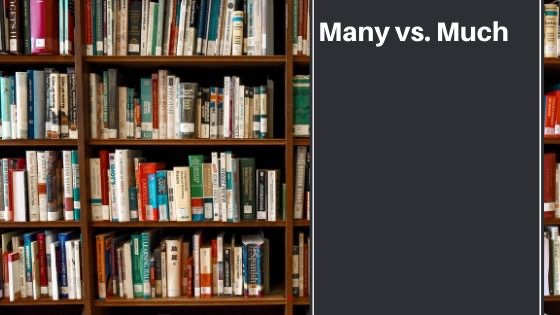
Many, an adjective, constitutes a large amount. It is used with countable items, which are those items that can be individually counted. These include such items as computers, notebooks, pens, umbrellas, lamps, baskets, cars, etc. Another difference is that many is always used with plural nouns. Notice, too, that each time you use many, it accompanies a plural verb. Let’s look at a few example sentences.
There are many computers in the library.
I don’t see many clouds in the sky.
Owen has many pieces of paper on his desk.
Something quick to note are uncountable nouns which may become countable nouns. This happens when a unit of measurement is applied to the uncountable noun. For instance, we cannot count water but we can count cups of water. We cannot count rice, but we can count pieces of rice. In cases like this, it’s important to look for a or an. These will be present with countable nouns, but they will be notably absent where there are uncountable nouns.
Countable noun: I borrowed a cup of sugar from my neighbor.
Uncountable noun: How much sugar is in the cookie recipe?
Much, an adjective, means that which is great in amount. Much is used with singular verbs, singular nouns, and uncountable nouns. This is essentially the key difference between the two words. Most uncountable nouns reflect ideas and qualities, e.g., wisdom, knowledge, education, or items that are much too small to count – sand, rice, water, etc. For this reason, using a or an is unnecessary and would look out of place.
How much rain will we get tonight?
We cannot count each raindrop, so therefore is uncountable. We got three inches of rain…one centimeter of rain. This unit of measurement makes it a countable noun.
There is not much tea in the kettle.
Susan has much wisdom about swimming.